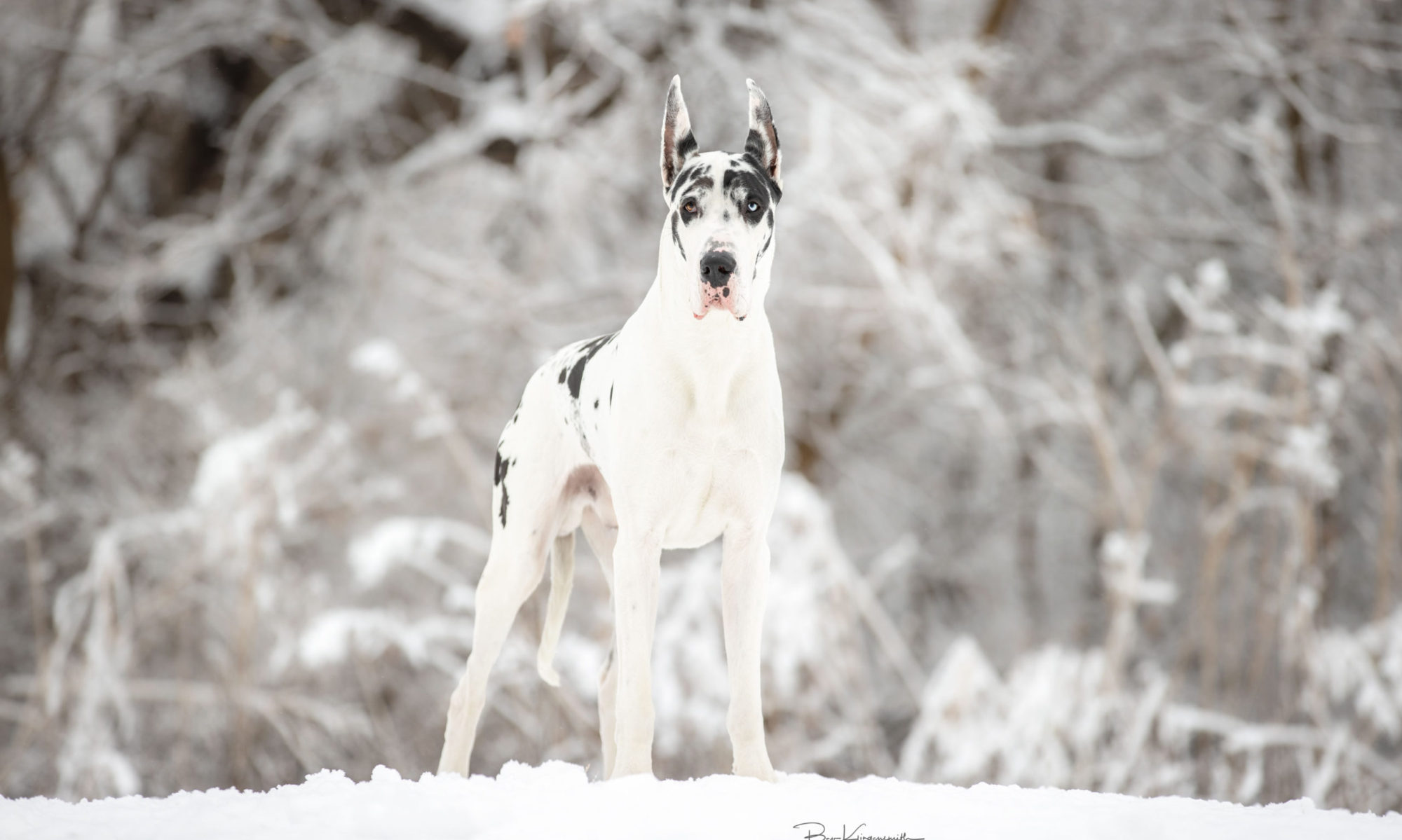Had a bit of a scare with Skyy this past weekend.
Saturday night, she became increasingly uncomfortable. She acted as if maybe she was nauseous, swallowing repeatedly. She kept swallowing these big gulps of air and was obviously distressed. I couldn’t determine what was wrong, so squeezed some Phazyme (gas relief) capsules down her throat, out of concern about bloat.
 Over the course of the night, she wasn’t improving and seemed to be getting worse. My concern grew. Loaded up and headed to the ER vet around 4:00 AM. Upon initial evaluation, the vet was quick to blame our raw feeding method, even hinting at the chance of salmonella. (ha)
Over the course of the night, she wasn’t improving and seemed to be getting worse. My concern grew. Loaded up and headed to the ER vet around 4:00 AM. Upon initial evaluation, the vet was quick to blame our raw feeding method, even hinting at the chance of salmonella. (ha)
We did x-rays of her stomach & trachea and a blood panel. After several hours at the ER clinic, nothing could be determined, so an anti-nausea injection was given and I took her home, with instruction to give a Pepcid-AC once a day for the next couple of days and continue to monitor her.
Skyy was still uncomfortable and continued the swallowing air, along with some gagging and retching. I took her into my regular vet on Tuesday for observation, concerned that we might be dealing with some sort of impaction. I had been feeding way too much bone lately and became concerned that might be the problem. Raw bone is digestible, but too much bone (in relation to meat) in the dog’s diet can cause constipation. Thankfully, my vet was able to rule that out, although we were all still stumped on what could be wrong.
Tuesday evening, Kizzy started doing the odd swallowing, as well as some gagging. She wasn’t in distressed state and her symptoms were more subtle. In fact, her symptoms were so minor, I wouldn’t have paid them a lot of attention if they weren’t mimicking Skyy’s more severe symptoms.
After Kizzy started with her symptoms, I started looking at other ideas of the problem. Both dogs had been given an intra-nasal kennel cough vaccine the previous Monday. Upon some research and follow up discussion with both my mentor and my vet, it was determined that we were dealing with a reaction to the vaccination, also known as vaccinosis. Any adverse reaction to any vaccine can be classified as vaccinosis. It seems to be a rather broad term, encompassing minor reactions all the way to serious reactions, including death.
In this case, my dogs weren’t infected with kennel cough, rather their reaction was due to something being sprayed up their nose. The allergic reaction in the trachea and bronchial tree caused inflammation and subsequent irritation of the throat.
 To give a little more detail about kennel cough vaccines, there are two ways to administer – an injectable or intra-nasal. The intra-nasal is preferred for both a faster and better immunity response. Because of the nature of kennel cough, being picked up through the nasal passages, there is also a believed benefit in the location specific antibodies.
To give a little more detail about kennel cough vaccines, there are two ways to administer – an injectable or intra-nasal. The intra-nasal is preferred for both a faster and better immunity response. Because of the nature of kennel cough, being picked up through the nasal passages, there is also a believed benefit in the location specific antibodies.
When reporting the adverse reaction to the vaccine manufacturer, I spoke with a staff veterinarian. Less than 5% of dogs have a reaction to this vaccine (what luck!). Treating the dogs’ reaction with Benadryl would have likely taken care of it. To have known that $300 (and lots of worry) ago!
To report adverse vaccine reactions in dogs, you (or your vet) can go directly to the USDA website or contact the vaccine manufacturer. I went through the vaccine manufacturer and then they will report it to the USDA.
I’ve been a long time believer in a limited vaccination protocol, due to problems like vaccinosis and the fact that repeated vaccinations do not improve immune response.
For those unfamiliar with a limited vaccination protocol, this is the vaccination schedule we use:
| AGE OF PUP | VACCINE TYPE |
| 8 – 9 weeks | Distemper + Parvovirus, MLV (Modified Live Virus) No 5- or 7-way combos |
| 12-13 weeks (4 weeks after 1st) |
Same as above |
| 6 months or older | Rabies |
| 1 year | Distemper + Parvovirus, MLV |
| 1 year | Rabies, killed 3-year product (give 2-4 weeks apart from distemper/parvovirus booster) |
Instead of annually repeating parvo/distemper vaccinations, I titer my dogs. A titer checks for antibodies in the blood, to get a picture of the dog’s immunity to specific viruses. I strongly recommend titering, as opposed to blindly vaccinating. A titer is noninvasive and only requires a simple blood draw, so any vet can perform a titer. The blood sample is sent away to a lab and then the results come back within a few weeks. In the years that I’ve been titering my dogs, the results always come back showing an appropriate immunity level.
I have also recommended the kennel cough vaccination every 6-12 months for dogs routinely exposed to other dogs. At this point, I’m unsure if I’ll continue to give kennel cough. The vet believes that Skyy’s reaction was a one-time deal (it was the first time she had the intra-nasal), but I’m still hesitant.
Thankfully, Skyy is almost back to normal.
